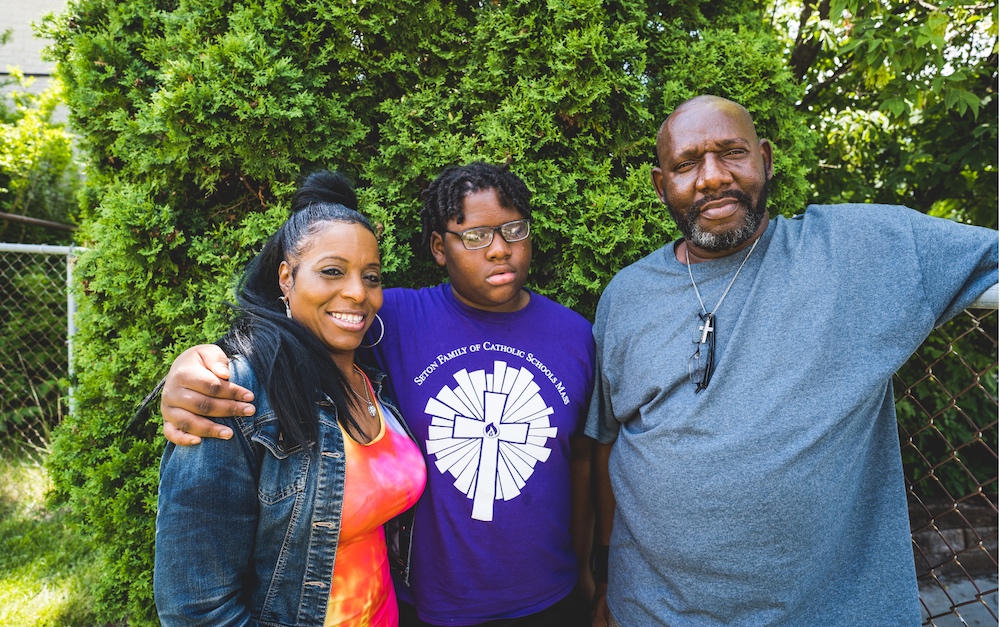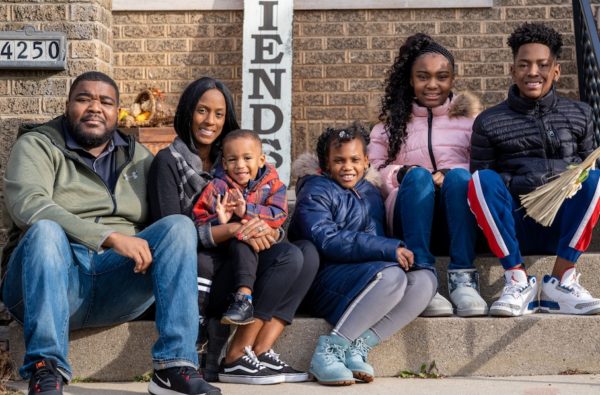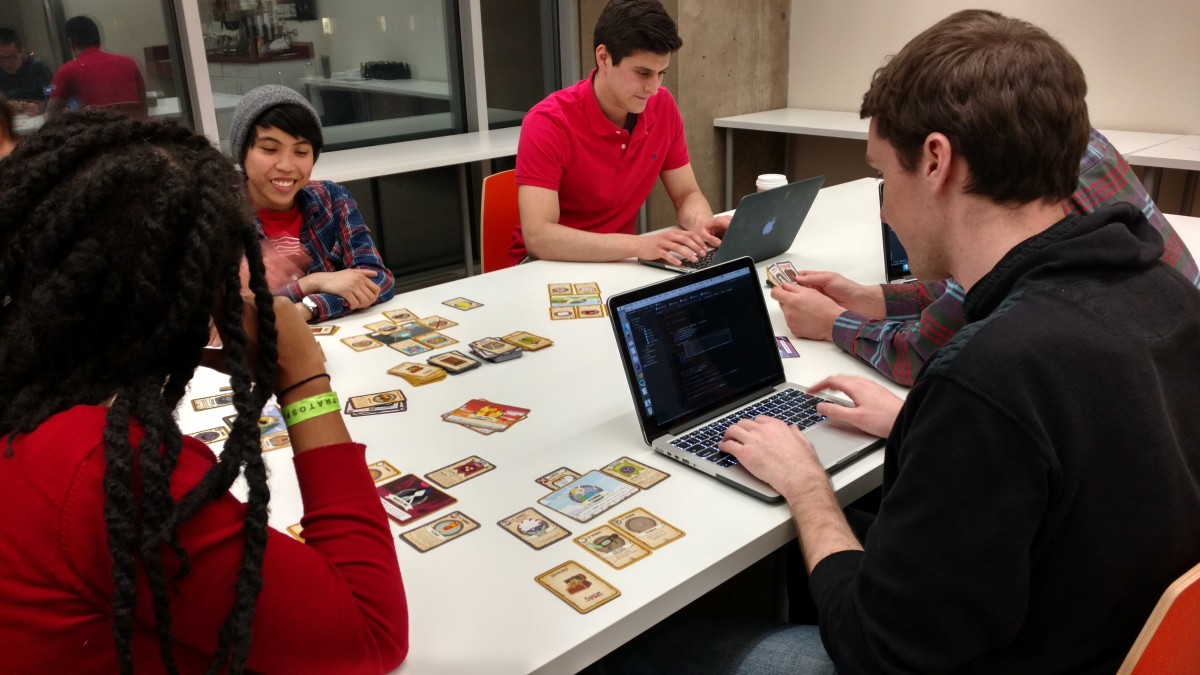But for lower-income families and communities of color, homeownership can often feel like a distant dream. Despite all the benefits of owning a home — ditching the rent cycle, building equity, instilling a sense of community pride — persistent barriers to fair and equal access to mortgage lending are shutting many families out.
Real estate nonprofit Acts Housing is on a mission to change the trajectory of homeownership in racially segregated Milwaukee. The organization is tackling the region’s homeownership gaps by breaking families out of the rent cycle and guiding them step-by-step through a complex mortgage lending system with its financial coaching, lending, real estate and home rehab services.
VP of Programs Deatra Kemp described Acts Housing as “a one-stop shop for homeownership.”
“Our mission and values are all about helping to create vibrant neighborhoods and really targeting families and communities that have been traditionally locked out of the homeownership process,” Kemp told Technical.ly. “Even though [home buying] is one of the biggest transactions in someone’s life, it lacks transparency. So we really are that bridge to make sure you are navigating that process successfully.”

A family supported by Acts Housing. (Courtesy photo)
Kemp said lending education is key to Acts Housing’s model. Once a family expresses interest in buying a home, the organization assembles a team to move them from financial coaching through to the closing table. Sometimes that work includes credit building and repair, document prep in order to secure pre-approvals, identifying mortgage products that fit a family’s budget and lifestyle, or connecting buyers with a real estate agent who will go to bat for them — whether their housing budget is $75,000 or $150,000.
Along the way, homebuyers are kept fully informed on the lending process and encouraged to ask questions, Kemp said.
“Our primary role is to be educators and advocates,” she said. “Buying a house is not easy. When you don’t understand something, we are not always quick to ask questions. I always like to tell people: You are not broken, the system is broken. The education piece is really important.”
Systemic barriers to homeownership
In Wisconsin, much like the rest of the nation, systemic barriers have prevented many families of color from pursuing the benefits of homeownership. While homeownership remains one of the primary mechanisms to build wealth, many Black and brown families faced issues such as redlining, banking discrimination, and other discriminatory practices leading to lower wages and racial gaps in homeownership.

Deatra Kemp. (Courtesy photo)
A report from the Wisconsin Policy Forum found that homeownership gaps among racial groups widened over the past decade, reporting the 2019 homeownership rate for Black households was roughly half that of white households. While the Black homeownership rate is higher in Milwaukee than statewide, the city retained a 29-percentage-point gap in Black-white homeownership. Just 25% of Black households owned their home in Wisconsin, overall. The Hispanic-white homeownership gap was also higher than nationally reported rates.
“For minority communities, there are a lot of barriers: credit building and debt issues, savings, banking deserts, the historical bias of banks, etc.,” Kemp said. “Every culture deals with money differently and is taught about money in different ways. [The current home buying system] was built around one culture. That’s why we’re trying to teach you how to navigate the system, and getting involved in advocacy to see the system change.”
Closing the gap
Helping families escape the rent cycle is one way to combat the gap, Kemp said. The average monthly mortgage payment for Acts families is just $868, far below the average rent cost in Milwaukee — roughly $1,300 per month for an 850-square-foot unit.
But the benefits of homeownership extend well beyond improving one’s financial position, Kemp said. It also contributes to community mental health, a fact many people take for granted.
“Homeownership in the Black community is a mental health issue: For too long, we have lived in spaces that are not in our control,” she said. “We don’t realize the burdens we’re carrying because we don’t control the spaces we live in. Your baby kicked a hole in a wall and you’re scared to death that you might be evicted because we are seen as ‘thugs.’”
Kemp said while Blacks make up roughly 6% of the city’s population, nearly all of the defendants in eviction court are Black or brown — a story explored in-depth in Matthew Desmond’s 2016 bestseller “Evicted,” which examined poor renting families in Milwaukee.
“These are people with kids, they go to work every day, but rent eats first,” Kemp added. “Real life happens and they are not financially stable enough to handle that. If we were building equity on a monthly basis and not just throwing money away, we’d be able to better take care of ourselves and our families.”

A family supported by Acts Housing. (Courtesy photo)
Dreams restored
Since launching in 1995, Acts Housing has helped more than 3,215 families purchase homes and has invested more than $235,714,000 directly into Acts communities through home purchases and home rehab projects, according to the organization.
“I want my people to dream big,” Kemp said. “We all have to start somewhere. If you have the opportunity to take advantage of [homeownership], you should. I’m concerned about so many dreams deferred in our community because we don’t have the leverage, assets, or collateral to do it. I want people to build that equity, buy that next-level house, or start a business.
“I hope one day to work myself out of a job.”
Subscribe to This Week in Milwaukee Rising:

This article appears as part of This Week in Milwaukee Rising, a weekly newsletter from Technical.ly highlighting the innovators bringing a more just, equitable and dynamic Milwaukee economy. Subscribe here. The series is underwritten by American Family Insurance Institute for Corporate and Social Impact.
Before you go...
Please consider supporting Technical.ly to keep our independent journalism strong. Unlike most business-focused media outlets, we don’t have a paywall. Instead, we count on your personal and organizational support.
Join our growing Slack community
Join 5,000 tech professionals and entrepreneurs in our community Slack today!





